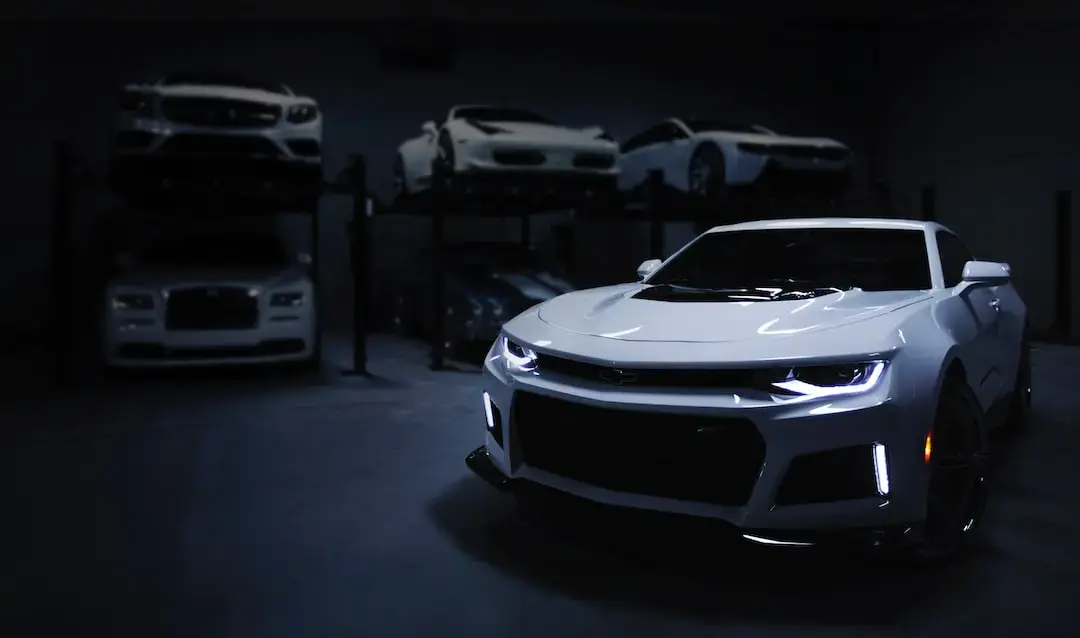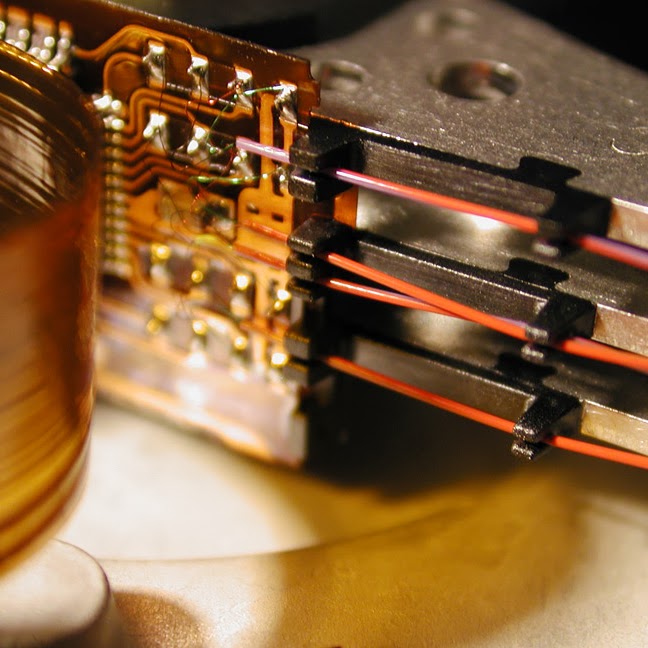There’s a lot of problems with this. Just some include that it’s a blog and doesn’t link to the actual study so it’s impossible to see what’s going on with the this report. They also never explain what this “reliability score” even means or what’s included in that. Then they start doing things like using a percent to compare the scores saying this is percent more reliable. But we still don’t even know what this score is, and comparing as a percent may not make any sense to say depending on what the scores are and how they’re calculated. Unfortunately you can’t really draw any conclusions from what’s in this article.
The underlying CR report is more detailed but it’s still a dumb study because it’s reported problems from the consumer, not actual problems. E.g. eco mode on the Ioniq 5 is a “problem” even though it worked as designed. Also they proceed to recommend Tesla even though Tesla has the worst reliability rating in the industry according to numerous other studies. Overall terrible study.
Combining EV and plugin hybrids together is quite strong indicator that this study has agenda attached.
Plugin hybrids were the most unreliable. Tech wise all hybrids are more closer to gas powered than EV’s. Of course plugin hybrids are more unreliable, you have two engines, so you get issues from both.
Except they didn’t? Plug ins, EVs regular hybrids, and ICEs were all different categoriesc at least in the actual press release on the study.
While i do have issues with the studys breakdown c I don’t think paint chips and mismatched paint should be classed under reliability issues, but the they were upfront about all of it.
Had the same response. The headline itself reeks of spin.
Here is the actual report by CR
There reasoning for this
“Most electric cars today are being manufactured by either legacy automakers that are new to EV technology, or by companies like Rivian that are new to making cars,” says Jake Fisher, senior director of auto testing at Consumer Reports. “It’s not surprising that they’re having growing pains and need some time to work out the bugs.” Fisher says some of the most common problems EV owners report are issues with electric drive motors, charging, and EV batteries.
I suppose the most important part that’s not included here is that manufacturer warranties cover all these issues and will repair for no cost to the consumer.
Yeah that is good, as they should as most of these issues are manufacture or engineering defects of the car. But it is still a hassle to deal with as a consumer. No one wants to get stranded on the side of the road in a broken down car.
This stuff might also affect your resell value as well,
deleted by creator
Why is Consumer Reports considered a rag?
gasp you mean electric vehicles that have been on the market for 7-ish years now are less reliable than the ICE vehicles that have had nearly a hundred years of development and refinement behind them? Color me surprised!
TLDR: A study by Consumer Reports found that found that across the industry EVs tended to have higer rates of reported reliability issues compared to conventional gas cars. The authors contribute this to the large number of new EVs models that have come out in the last few years as well as new car companies, and doubt that it has much to do with the drivetrain technology itself.
Interesting they also found that hybrids were 26% more reliable than conventional gas cars dispite the addition of an electric drive train. Even more oddly with that information they found that plug in hybrids were the worst, at 146% worse than conventional gas, though note that the Rav4 plug in version was one of the most reliable vehicles surveyed.
“Most electric cars today are being manufactured by either legacy automakers that are new to EV technology, or by companies like Rivian that are new to making cars,” says Jake Fisher, senior director of auto testing at Consumer Reports. “It’s not surprising that they’re having growing pains and need some time to work out the bugs.”
“While Tesla’s EV components are generally reliable, the company continues to struggle with the build quality of its vehicles,” says Steven Elek, who leads the auto data analytics program at CR. “Tesla powertrains are now pretty solid for the most part, but Tesla owners report a lot of build quality issues including irregular paint, broken trim, door handles that don’t work, and trunks that don’t close. All of these pull down the brand’s reliability score.”-
So TLDR of the TLDR, expect manufacturers new models to have teething issues, especially if not owned by Toyoda, Hyundai, or Kia.
This tracks with my anecdotal experience. The EV drivetrain on my 2017 model 3 has been bulletproof, but I’ve had plenty of issues with Tesla’s poor build quality in other areas. Here are the notable examples:
-
Tesla had to replace two control arm joints that were poorly designed and didn’t seal out water, so they started squeaking/creaking extremely loudly
-
Two repeater camera assemblies that also didn’t seal against water well enough and stopped working
-
A faulty frunk actuator that locked the frunk shut (no, there’s no manual release except from inside the frunk lol). I don’t keep anything too valuable in there now.
-
So many software bug fixes. I’ll add to that, the original Intel computer just wasn’t good enough for this car needs it to do and it shows.
Honestly this isn’t too much worse than some of my ICE car experiences. I had a brand new Subaru Crosstrek which just kept going back for software updates (not having OTA or at-home usb updates SUCKS) as well as a pair of recalls around the engine. In one of those, the Subaru dealer nearly destroyed my engine by fucking up the timing chain alignment entirely on their own. Fun times.
-
why though?
technically they are much simpler, with less moving parts. if anything they should be MORE reliable
Gonna guess it’s the half baked software?
I was guessing crappy build quality, but software is a great way to introduce planned obsolescence now that i’m thinking about it.
Probably the “fail fast” design mentality
I know what you mean, but FWIW: You probably mean “move fast and break things”. “Fail fast” is usually about not hiding/carrying with you potentially bad errors, and instead “fail fast” when you know there’s an issue. It’s an important tool for reliability.
An unrealistic example: Better to fail fast and not start the car at all when there’s abnormal voltage fluctuations, then explode while driving ;)
Maybe they actually meant “fail fast” because it’s cheaper to build? It would certainly explain a lot.
Not quite sure myself if I’m kidding or not.
47% of all Electric Car “news” have a 82% chance of being 99% “bullshit”.
Your numbers are convincing, you must tell the truth
17% of America wants to know more.
I drive an older leaf, cannot confirm 😂
Did I miss the part where they differentiate between minor issues such as paint problems or YouTube crashing on the middle screen, and actual breakdowns where the car doesn’t move when it should? According to the original article, they’ve included reliability issues such as drivetrain problems, irregular paint and broken trim in their ranking.
Losing in-car entertainment or comfort functions is still undesirable, but if given the choice I’d rather have a car that runs without music than a stationary car that lets me stream movies until roadside assistance arrives.
And concerning the former, the infotainment systems in most ICE cars are just as cutting-edge as those in BEVs. I would expect differences in quality/reliability between different manufacturers, but not within the same brand and model family where the only relevant difference is the engine.(Edited for clarification.)
A while ago, there was something that showed the higher failure rate of various components on EVs because of the lack of routine service that has cars have. Basically, gas cars get a service and inspection every 5-10k miles when the oil is changed and any worn bearings, bushings, etc. are found. EVs don’t have that so things go unnoticed until they fail. Could this be the same? Could the “reliability” concerns just be normal wear that isn’t getting caught since there are no routing inspections?
It’s possible that’s a factor, but is doesn’t seem to explain the larger differences between plug in hybrids and regular hybrids, or the vast differences between manufacturers. I tend to agree with the authors that it has more to do with manufacturers and teething issues than the drivetrain itself.
Mechanics generally don’t inspect vehicles that are in for routine maintenance unless the customer is paying for inspections.
I can barely get the dealership techs to do a comprehensive check even when I do ask and am paying.
I mostly do my own work, but whenever I do take my car to the local Mazda dealer, they always provide a full inspection report as well as a video of the tech checking everything and explaining anything that they’ve found. Even when my wife takes her car in for only basic maintenance (it’s still under warranty so we take it in for oil changes), they do the same thing and don’t charge anything extra.
Same dealer network owns the local Ford dealer and I ended up taking my old Fiesta ST there for an oil change as I didn’t have the space to do it myself at the time. $45 for an oil change and tire rotation, and I got the same inspection report and video.
This seems like an extremely rare, high level of service and I’m still not convinced this would be the difference between EVs and ICE vehicle reliability if it was the standard at every dealer and independent shop over the past 10 years.
I attribute it to Tesla being a manufacturer that doesn’t care about the manufacturing process.
It would definitely be good to see a comparison of the reliability of ICE vs electric cars in countries where there is mandatory routine inspections for both. That would eliminate wear and tear as a contributing factor.
Seems like there are a number of issues with this.
-
Not defining “reliability challenge” in a meaningful way. (How many of these are problems that are expensive or time-consuming to repair? How expensive and how time-consuming? Are these problems that prevent the car from driving safely, or are they inconveniences that can be put off?)
-
Not controlling for manufacturer. (Toyota has long-been regarded as a reliable manufacturer, but they make 2 plug-in hybrids and 1 EV, all of which are new this year. Meanwhile, they offer about a dozen different traditional hybrids. I can believe that the Tesla Model 3 is less reliable than the Toyota Camry, but is a full-electric Hyundai Ioniq less reliable than a Hyundai Sonata?)
-
Including plug-in hybrids and full electric vehicles as one category. (Plug-in hybrids combine the old breakable parts such as transmissions with the new breakable parts such as lithium batteries. This is the trade-off that buyers make to get the efficiency of an electric vehicle at short ranges and the convenience of an ICE at long ranges.)
-
Yeah, if we’re talking bugie cars like Tesla’s, engineered from top to bottom to be a propriety machine, with jerry rigged electric systems that would make Apple blush, where you have no control, no ownership and have no control?
Say it ain’t so!
Pease, let’s return to the gas cars, engineered from top to bottom to be a propriety machine, with jerry rigged electric systems that would make Apple blush, where you have no control, no ownership and have no control.
It’s the only way.
Minor fyi but it’s spelled bougie
A broader context given at https://cleantechnica.com/2023/12/03/adding-context-to-that-consumer-reports-electric-car-reliability-report/
Consumer Reports also grouped powertrains together when discussing reliability, which is where some issues start to appear. Apparently, EVs suffered 79% more problems than gas-powered vehicles. That will undoubtedly lead to shock headlines, but it’s also misleading, Autoblog says. Most EVs are new to the market, which goes back to the cliché mentioned earlier. There are also a lot fewer make/models availability, meaning that simply averaging all models together will result in a few bad apples skewing the results.
Except for the one I bought it turns out…
I just got a 2024 Kia Niro Wave EV! Hopefully that means this thing doesn’t give us problems!
I have a 2020 Niro PHEV and frankly the gas motor is piece of shit. Last year they had to rebuild the entire thing after some piston parts failure. They had the car in the shop for almost 2 months because they had a back order on the engine parts. Luckily all has been well since then.
Kia has a pretty shit record with gas engines, but has been pretty good on the electric drivetrain. Hopefully they continue to make solid EVs. There need to be more lowish cost models out there.
Ooof, I’m sorry about that. Yeah, as much as I like the idea of PHEVs getting the best of both worlds, it also means risking the worst of both as well. Ultimately if the manufacturer cheaps out in the gas engine it’ll be a rough experience no matter how good the EV side is
It has otherwise been an excellent little car. 99% of my driving is done on the electric charge. I went most of the summer using almost no gas. Now that winter is here it mostly runs the heater :)
I assume this is used for this article https://www.consumerreports.org/cars/car-reliability-owner-satisfaction/who-makes-the-most-reliable-cars-a7824554938/ and maybe I overlooked it but I did not see it linked.
But overall, it seems like a weird study. There is so much variation between each car I have a hard time understanding what comparing reliability by type means or what value it has.













